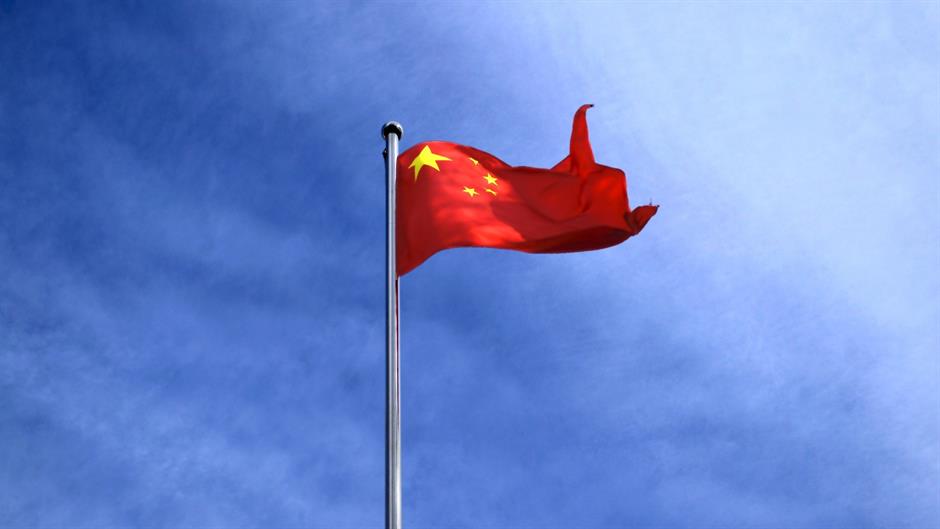
Chinese President Xi Jinping and French President Emmanuel Macron have signed a pact recommitting to the 2015 Paris Agreement, just days after the US formally withdrew from the landmark global treaty to fight climate change.
Speaking at a joint signing ceremony in the Chinese capital Beijing Wednesday, Xi reiterated both sides' shared determination to "push forth the Paris Climate Accords in response to climate change."
Though neither leader mentioned the US by name, Macron called out what he described as the "isolated choices" made by some nations.
"I deplore the choices made by some others, but I want to see them as marginal choices, because when China, the European Union, Russia, which ratified the Paris Agreements a few weeks ago, engage with firmness, the isolated choice of one or another (country) is not enough to change the course of the world, it will only lead to them being edged out," said Macron.
The Trump administration announced Monday that it would formally begin withdrawing the US from the Paris climate accord, the first step in a year-long process to leave the agreement.
President Donald Trump announced the move in 2017, part of a number of actions which rolled back Obama-era environmental regulations.
Trump's announcement came one day after more than 11,000 researchers around the world released a report warning that there would be "untold suffering" if climate change wasn't addressed as quickly as possible.
"Posterity will remember (policymakers) badly for dismissing climate change as a serious threat to our civilization," Phoebe Barnard, one of the lead authors of the report, told CNN.
In a joint statement released Wednesday, Xi and Macron pledged to "firmly support" the Paris Agreement, describing it as an "irreversible process," and a "benchmark for strong actions on climate change." The two leaders also agreed to commit to jointly work together on marine waste -- particularly to reduce plastics and plastic particles in the world's oceans.
More work to be done
China is the world's largest producer of carbon emissions and produced more than double its nearest competitor, the US, in 2017.
But Beijing has publicly stressed the importance of taking action on climate change in the past few years. Xi has regularly raised environmental issues as one of his main "three battles" facing China, while a meeting of the top Chinese leadership in October touted the promotion of "international cooperation on climate change."
To date, China's results have been mixed. A study in January found that the country's methane emissions were rising despite attempts by the government to crackdown on the climate-changing pollutant.
A CNN investigation in the coal-rich province of Inner Mongolia in September found new coal power plants were firing up across the region despite government promises in 2017 that new stations would be stopped.
In a speech on Tuesday, Macron said that Chinese and European cooperation on climate change was "decisive."
"Next year, we need, in the agenda of enhancement, to be collectively up to the task," added Macron.
Macron, who arrived in China on Monday, spent most of Tuesday with Xi in Shanghai at the second annual China International Import Expo (CIIE), where the two leaders toured the booths of French importers and tasted wine and beef.
Later in the day they watched a performance of Chinese opera with their wives and toured the city's Yuyuan gardens.
Kakvo je tvoje mišljenje o ovome?
Učestvuj u diskusiji ili pročitaj komentare





 Srbija
Srbija
 Hrvatska
Hrvatska
 Slovenija
Slovenija



























































